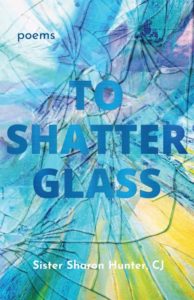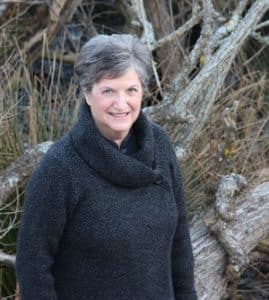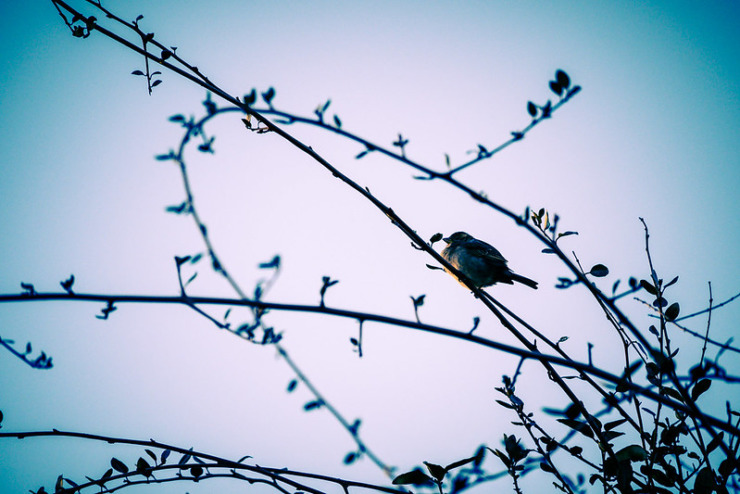Sharon Hunter Makes Sense of Her Life…
Sr. Sharon Hunter is making sense of her life, and she’s using poetry to do it.
The 56 poems of her new collection, To Shatter Glass, are a journey into childhood and memory, the grief and pain of a broken marriage, and a coming to terms with one’s life and the people who have shaped it. This is the poetry of an interior pilgrimage, as real and palpable as any physical pilgrimage to a revered place. On this journey, Hunter is reaching for understanding and forgiveness, both for the people she knew and for herself.
The poems are not easy to read; they were likely far more difficult to write. Hunter moves back and forth between memories of being raised by alcoholic parents, a marriage in which she often felt her husband’s abuse was justified, and the gradual steps toward resolution. These poems raise important questions about human brokenness, like whether we can ever be made whole in this life.
She sees worry and anxiety as her own addiction: “When born, on a cold October morning, / I hit the open air thinking, ‘Uh, oh.’ / There were valid reasons, but there always were.” And then she wonders what might have happened if Jesus, born into poor and dangerous circumstances, had arrived worried.
This is the poetry of personal pain. Hunter is coming to grips with what happened in the first half of her life, the half that tends to shape, guide, and direct the whole of one’s life. Consider celebrating Christmas when your mother can’t remember where she hid the presents, because she was drunk.
Little Children of Adult Alcoholics

the mediocre children
who hold excellence
purposefully within.
Too afraid to succeed,
too numb to utter the word “help.”
We coax our minds to accept havoc.
We are the master pretenders.
Santa IS coming.
Just as soon as Mother remembers
where she hid the gifts.
Another glass of scotch.
It’ll come to her.
.. .
Even she can’t forget Christmas.
We are the sad-eyed ones,
forgetting to laugh at the joke.
Abandoned by our peers,
would-be friends who decide,
rightfully so,
we’re not much fun after all.
We build bridges of snow
across teardrop rivers,
to fend off time as we play.
When the sun slides into night,
we join our parents
in their rendition
of what kids need.
Welcome to the Kennedys,
the Smiths and the Joneses.
You’ll never know us.
We guard family secrets and absorb
everyday absurdities like cotton swabs
mopping up a mud puddle.

Sr. Sharon Hunter
Hunter, 70, has been a professed religious for 35 years with the Community of Jesus in Cape Cod, Massachusetts. Raised in the farming community of western Pennsylvania, she entered a modern convent in her early 30s, following an abusive and childless marriage. According to the biographical note, she discovered that convent life was not an escape from life, as she brought her trauma with her. This is her first collection of poetry.
To read Hunter’s poems is to know “this isn’t the way it’s supposed to be.” The poems beg questions, age-old questions about why there is so much pain and suffering. But Hunter sees the hope in life as well. Within all the pain and suffering, she writes, is a pinpoint of light: “It etches the landscape, revealing the presence / of goodness, that never left. / We are a fresh canvas awaiting its artist, / a night sky awaiting its moon and stars.”
Ultimately, that’s what To Shatter Glass accomplishes. It plumbs the depths of pain, hurt, and despair, and then it brings us to that pinpoint of hope.
Photo by NathalieST, Creative Commons, via Flickr. Post by Glynn Young.
How to Read a Poem uses images like the mouse, the hive, the switch (from the Billy Collins poem)—to guide readers into new ways of understanding poems. Anthology included.
“I require all our incoming poetry students—in the MFA I direct—to buy and read this book.”
—Jeanetta Calhoun Mish
- Poets and Poems: Beth Copeland and “I Ask the Mountain to Heal My Heart” - July 10, 2025
- A.E. Stallings: the Parthenon Marbles, Poets, and Artists - July 8, 2025
- Poets and Fables: Steven Flint and “The Sun and the Boy” - July 3, 2025


Leave a Reply